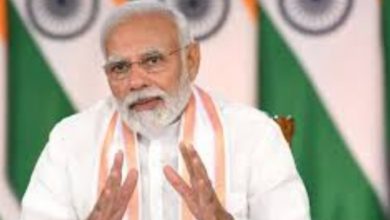What is behind Europe’s travel chaos?

Strikes and staff shortages are forcing airlines to cancel thousands of flights and causing hours-long queues at major airports, dashing hopes of a sizzling first summer after Covid lockdowns.
Here is a summary of some of the key developments:
Labour unrest
After sweeping job cuts and pay cuts when Covid-19 brought travel to a grinding halt, staff across the industry from pilots to baggage handlers are asking for big pay increases and better working conditions.
Norwegian Air in June agreed a 3.7% pay rise for pilots among other benefits, in a sign of what other airlines may have to offer to avoid labour strife.
➡️ Heathrow
A three-day strike refuellers at Britain’s busiest airport, which was set to begin on Thursday, has been suspended after the employees received a revised offer, labour union Unite said.
➡️ French airports
French unions said on July 19 they had reached wage accords for ground staffers after three months of negotiations. The agreement will result in a more than 6% salary increase for some lower salary ranges, while higher-level jobs will see an increase of around 1% to 5%.
➡️ SAS AB
SAS and pilot unions have reached a wage deal, the Scandinavian airline said on Tuesday, ending a 15-day strike that grounded 3,700 flights and put the carrier’s future in doubt.
The airline, which filed for US bankruptcy protection on the second day of the strike, said the industrial action had cost it more than $145 million and affected 380,000 passengers.
SAS said the agreement involved higher productivity, increased flexibility in seasonal capacity and a commitment to rehire 450 pilots laid off during the pandemic.
Pilots agreed to around a 25% cut in wages and terms as well as up to 60 working hours per week, chairman of the Danish pilot union told Danish media.
➡️ KLM
The Dutch arm of Air France KLM and unions said on July 14 they had come to a collective labour agreement after weeks of unrest. The agreement includes a two step pay increase totalling 4% for ground crew with a minimum monthly increase of 80 euros ($80.5) before tax in each phase.
➡️ Lufthansa
A German union representing Lufthansa ground staff is demanding at least 350 euros per month more over 12 months to cushion the effects of soaring inflation.
The staff called on the German flag carrier to end its “cost-cutting craziness” in a letter to the supervisory board seen Reuters on July 6, saying it has contributed to the recent chaos laying off too many workers.
Lufthansa declined to comment on the letter, though its chief executive apologised to employees and customers in late June, saying the airline “did go too far in cutting costs here and there”.
➡️ Ryanair
Ryanair said on Thursday it reached a five-year agreement with labour unions representing pilots in France and in Spain. The agreements include a return to pre-Covid salaries and “allow wage improvements and other benefits beyond the full return to salaries for Ryanair pilots based in France and in Spain,” the airline said in a statement.
➡️ Easyjet
Spain-based cabin crew at easyJet plan to go on strike for nine days in July, demanding a 40% increase in their basic salary which is much lower than in countries, such as France and Germany, local union USO said.
Reduced summer schedules
Airlines have cut thousands of flights from their summer schedules to cope with the disruptions, including Lufthansa, British Airways, easyJet, KLM and Wizz Air, while major airports have also taken steps to limit traffic.
On July 18, flights to and from Britain’s London Luton airport were temporarily disrupted after soaring temperatures caused a defect in its runway, prompting airlines to delay or divert their planes.
Heathrow on July 12 asked airlines to stop selling tickets for summer departures, after it capped the number of passengers flying from the hub at 100,000 a day to limit queues, baggage delays and cancellations.
The British government launched an “Aviation Passenger Charter” on July 17 to help passengers know what to do if they are confronted cancellations, delays or missing baggage with guidance on how to complain if they feel they have been treated unfairly.
Hiring spree and incentives
Airports and airlines are scrambling to hire more workers from pilots to security and border control staff and baggage handlers after many left during the Covid-19 crisis.
Industry executives say it is hard to recruit for often physically demanding, relatively low-paid work at airports often located out of town. Training new hires and getting them security clearance to work at airports also takes months.
➡️ Schiphol agreed to pay 15,000 cleaners, baggage handlers and security staff 5.25 euros ($5.50) extra per hour during the summer.One of Europe’s busiest airports needs to hire 500 security staff. Now, there are 58,000 workers at and around the airport, 10,000 less than before the pandemic.
➡️ Charles de Gaulle and Orly airports in Paris need to fill 4,000 jobs mainly in security, maintenance and travel retail, according to airport operator Groupe ADP and the CDG Alliance.
More than 20,000 people were laid off at Charles de Gaulle during the pandemic, according to the CGT union.
Airport security company ICTS, which operates at Charles de Gaulle, is offering a one-off 180 euro bonus to those delaying their vacation until after Sept. 15 and 150 euros for staff who sign up new recruits, according to a CGT union representative.
➡️ Frankfurt Airport, Germany’s busiest hub, has rehired nearly 1,000 ground services employees after cutting about 4,000 during the pandemic, but will continue to see disruptions due to lack of workers in the next two or three months, its operator Fraport has said.
Germany plans to fast-track work permits and visas for several thousand foreign airport workers, mainly from Turkey, to help to ease the travel chaos.
According to the ADV airport association, about one in five jobs in security, check-in and aircraft handling is unfilled at German airports.





